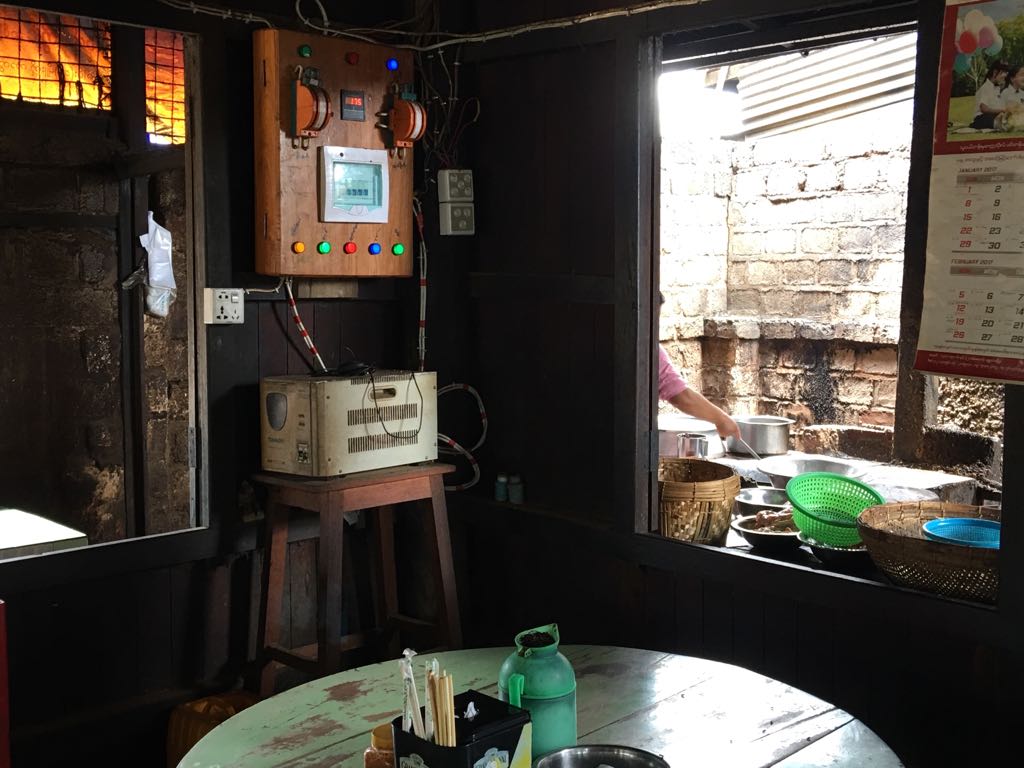Building on the vibrant energy landscape in Myanmar and the program’s experiences in promoting decentralized renewable energy solutions for energy access in other regions, the Green & Inclusive Energy program is expanding its work to a new country: Myanmar. The initiative in Myanmar is executed in collaboration with the Renewable Energy Association of Myanmar (REAM) and its coalition of partners — the association Hydropower for Community Empowerment in Myanmar (HyCEM), the Hydro Empowerment Network (HPNET), the Biomass Association of Myanmar (BEAM), World Wide Fund for Nature (WWF), Mercy Corps, various local civil society organizations, and government agencies focusing on clean energy access.
Myanmar’s proven solution
Myanmar has a vibrant off-grid electricity sector, pioneered by local social entrepreneurs. A remarkable number of market-based decentralized renewable energy (DRE) mini-grids have been designed, implemented, financed and maintained by indigenous DRE practitioners in partnership with rural communities. Most of these projects are community-owned biomass and hydro mini-grids, using local technology innovation and sustainability mechanisms.
Bias towards the grid
However, the bias towards centralized electricity provision is persistent. The National Electrification Plan (NEP) and the National Energy Master Plan focus on the extension of the centralized grid. The power sources for this grid are limited to coal, large hydro, and gas, negatively impacting the climate. Moreover, places where the central grid exists are marked by power cuts and lack of affordability for rural households.
The NEP’s minimal provision for off-grid solutions supports Tier 1 energy access, which cannot power irrigation, agri-processing, and other such poverty-alleviating end uses. Its subsidy program for renewable energy mini-grids requires is attractive to foreign developers but not conductive for most of the long-experienced local social entrepreneurs.
Missed opportunity
The situation in Myanmar presents a unique challenge whereby the on-the-ground, indigenous progress for rural electrification is not yet leveraged by the government and international donors. In fact their baseline studies simply do not include the achievements of the local private sector. This is a missed opportunity since the proven off-grid solutions can play a viable role in accelerating the government’s goal for universal energy access by 2030.
Integrating solutions
Equitable integration of the local private sector into national and state electrification plans is critical. This requires a multi-stakeholder approach that is respectful of Myanmar’s indigenous expertise, sensitive to the modern day of challenges of local social entrepreneurs, and unified against the political economy of fossil fuels and large hydropower.
REAM has facilitated such dialogue over the last 5 years and together with Hivos will be able to advance its coalition of multi-actors, while also strengthening indigenous and inclusive enterprise-based solutions for energy access. We look forward to working with REAM and its partners to scale decentralized renewable energy solutions for rural livelihoods in Myanmar.
We look forward working with REAM and all other partners involved to achieve inclusive energy access in Myanmar.
For more information about this program download the 2-pager Accelerating Myanmar’s invisible People Power.
Also, watch the video below to learn more about the renewable energy entrepreneurs in Myanmar.




